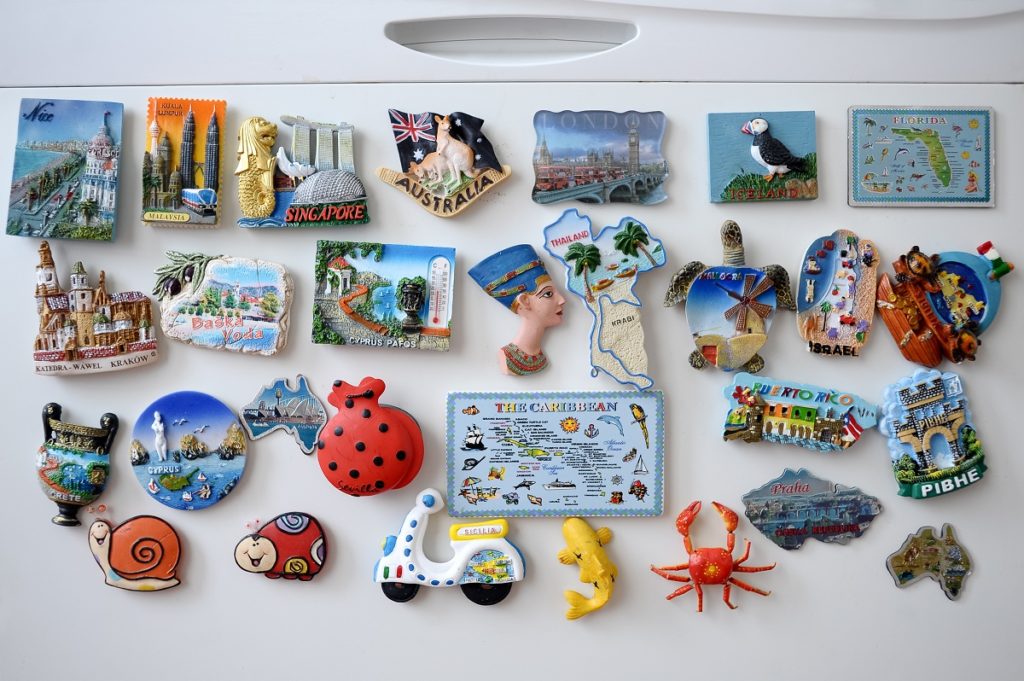Did you know there’s such a thing as “ethical souvenir shopping”? For most of us, traveling is about collecting memories away from home and sharing them with loved ones when we return. Part of the fun is bringing home souvenirs that physically represent these memories.
That’s all well and good, but we have to put more thought into how we buy souvenirs. Like all things, there’s a right and wrong way to do it.
Thinking like a conscious souvenir shopper
The souvenir industry was originally intended to provide income to local craftspeople. Today, it’s worth billionsof dollars, and because it’s unregulated, it’s hard to stop the influx of cheap, mass-produced imports that steal business opportunities from locals.
Your responsibility as a conscious consumer is to think of souvenir shopping as a way to support the localities you visit, instead of simply adding a new item to your keepsake box. The joy of owning a shiny new memento can be to fulfill your selfish whims while being conscious of local communities.
Supporting the local economy
 Ideally, the souvenir supply train starts with demand from travelers who want to support local craftspeople. But with the market flooded with cheap items that can be bought anywhere in the world, there’s always going to be more supply than demand. It’s up to you to choose authentic souvenirs crafted locally to level the playing field.
Ideally, the souvenir supply train starts with demand from travelers who want to support local craftspeople. But with the market flooded with cheap items that can be bought anywhere in the world, there’s always going to be more supply than demand. It’s up to you to choose authentic souvenirs crafted locally to level the playing field.
Go for local souvenir shops, producers, and artisans. Not only are you giving back to the community that has welcomed you, but you will also gain cultural insight and meet people and learn their stories. Some would say that’s worth more than any sort of physical keepsake.
Try to get to the source of production. Engage with the artisans. Keep it lighthearted and easy. Your interaction with them is the best souvenir there is. Plus, it’s good for tourism on a grander scale.
Being mindful of “bad” souvenirs
Just as there are good souvenirs, there are also bad souvenirs. The number one no-no is buying animal products. Avoid tortoiseshell, ivory and tiger parts so you don’t support poachers and further contribute to the endangerment and extinction of these species.
Never steal items from places with religious and cultural significance, ancient ruins, and monuments like the Berlin Wall. It’s not only morally questionable, but you could be facing fines and jail time.
Before buying anything, make sure you know the origin of the item. If your gut tells you that there’s something shady going on, demand for proof that whatever you’re buying has a legal and documented history.
It goes without saying, never buy counterfeit items.
Wrapping up
First, buy local. If possible, source the item directly from the maker. Ask questions about its origins, its components, and how it was made. Show respect to its story if there’s one.
Authentic items can take a long time and great effort to make, and their creators would want them to find a good home. Avoid shops that buy directly from the producer but resell the items for twice the price they got them for.
Finally, trust your intuition. Some shops are genuinely all about helping local craftspeople; others are just trying to make a profit. Trust your gut to be able to tell you the difference.
Souvenirs can be a t-shirt, a woven rug, or a pendant. But they can also be experiences and stories and photographs. So while you’re being a conscious shopper, remember your souvenir options are virtually limitless.
